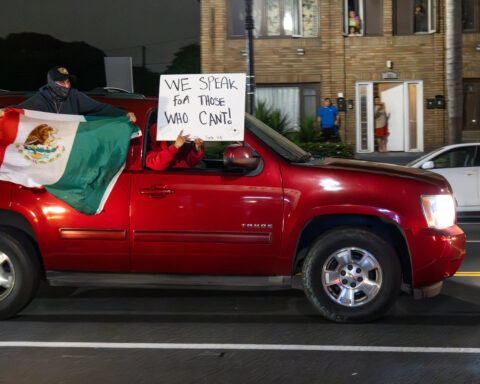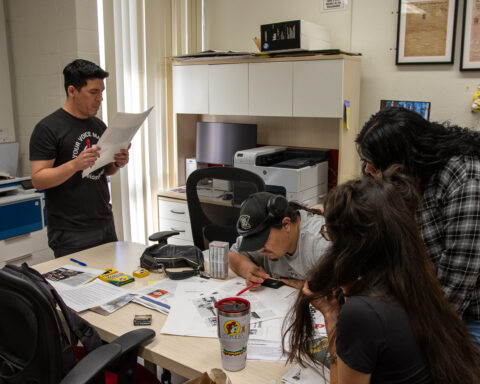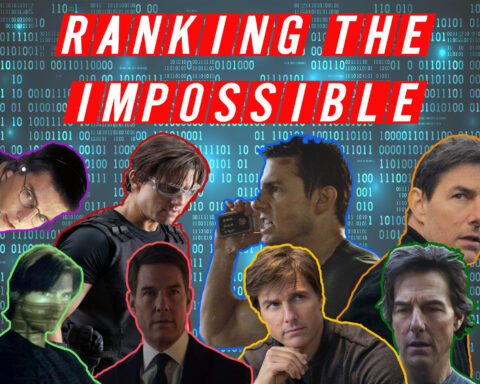 Whether it’s a family member, a friend or even ourselves, we all know at least one person who claims they’re “not into” politics, for one reason or another. With less than half of eligible voters actually casting ballots in presidential elections, we see this sentiment shared by most Americans. The United States trails behind other developed countries in voter turnout and participation. Opting out is the norm. However, we don’t have the luxury of doing so anymore– going against this norm and voting is the first step to investing in our future.
Whether it’s a family member, a friend or even ourselves, we all know at least one person who claims they’re “not into” politics, for one reason or another. With less than half of eligible voters actually casting ballots in presidential elections, we see this sentiment shared by most Americans. The United States trails behind other developed countries in voter turnout and participation. Opting out is the norm. However, we don’t have the luxury of doing so anymore– going against this norm and voting is the first step to investing in our future.
Many don’t vote because they don’t think their vote matters when in fact, voters are often what politicians fear the most. It is so powerful that it was denied to even the most privileged women until less than 100 years ago. As recently as 1971, the voting age was changed from 21 to 18 after people revolted, outraged that they could be drafted and forced into war by a president that they weren’t even able to vote for. Jim Crow– the blatant and unrelenting force keeping African Americans from being able to vote through tactical requirements and unjust tests– is an example of ultimate injustice.
And yet, this practice is still alive and well in the modern age; it simply goes by different names.
Gerrymandering allows certain officials to divide voting districts in ridiculous and backward ways so they can include the desired demographic to ensure their district stays in their favor. There are countless instances in recent years of voter suppression, mostly in highly populated areas by people of color (who are more likely to vote democratic). New forms of identification are required just before the deadlines, but only for certain people, names magically get removed from the registration list, and polling places are intentionally put out of range so it’s harder for individuals with transportation issues to physically be able to vote. Even those already in line are told they must leave after the polls close, despite it being their lawful right to stay and cast their ballot. While voting day is a national holiday in most developed countries, in the US we have it on a weekday, nearly ensuring complications for those who can’t afford to take time off away from work to vote and students who can’t afford to miss class. Though we’re told to believe “de jure” discrimination is a thing of the past, we see it prevail time and time again. Even less than two weeks ago, the Senate voted to keep in place the law which keeps Native Americans from voting due to unique requirements of addresses and identification– which Natives living on reservations their ancestors were forced onto do not have.
 It’s vital to remember that representatives and officials are supposed to serve us, The People, and not the other way around.
It’s vital to remember that representatives and officials are supposed to serve us, The People, and not the other way around.
Now of course, those barred from voting due to external barriers aren’t the majority of people who opt out. Most eligible voters are pessimistic about elections and don’t feel a need to participate, some don’t want to settle, and some don’t want to participate because in a flawed system, or they don’t like the candidates completely. But the reality is that young voters– now more than ever– have to be the ones voting and taking action, because those currently in power and making laws are affecting our future wellbeing.
For example, in 2030, I will be 33 years old. Those who just came of age to vote this year will be only 28. By this time, according to scientists and experts, the planet will be past the point of no return. Humanity has a maximum of 10-15 years before climate change wrecks the planet with “extreme drought, wildfires, floods and food shortages for hundreds of millions of people”. By 2050, carbon dioxide will be at an all time low and we won’t be able to breathe, and yet green energy and conservation efforts are being repealed every day by the current administration.
The government officials doing so are old enough that they likely won’t be alive to see the damage, and those rich enough are planning space colonies instead of investing in clean energy. The irony is there are immediate things we could do to drastically reduce and even eliminate global emissions– less than 100 companies are responsible for 71% of these emissions, and politicians are allowing it. Capitalism and money has these companies in power and allows them to cut corners for profit at the expense of the planet and the human race. This is our collective future, not something we can ignore for the sake of avoiding conflict. We must hold people accountable for what they are doing, and we don’t have to be nice about it.
Politics isn’t separable from the rest of life; politicians are the ones giving and taking away human rights that affect people every day, even if it isn’t yourself, and they often don’t represent the majority of the people they’re supposed to. The system isn’t perfect. In fact, it’s deeply flawed. However, we can’t fight a flawed system and change it without understanding how it works. The problem is, many people don’t care to even find out.
In order to avoid having to choose between the “lesser of two evils,” we must elect those we do like in local and midterm elections, since it’s the only way they can get to the top. Voting is an act of resistance against the norm of passivity; if people aren’t voting, there’s no reason for those in power to believe anything else should change or be done. Voting unites us towards a common cause, a common concern and interest at the most basic level. It shows those in power that we are willing to care, to make the effort, to take a stand, however small it will be.
Yes, voting is far from the only thing we can or even should do. It might not be the most effective, direct action possible because of the electoral college and other outdated rules, but it’s a path. It’s a basic right people have fought and unified for since the very beginning of this country and leads to greater movements, to empathy, and understanding, and accountability that’s long overdue.
- The Frida Cinema Is the Only Art House Theater in OC - December 10, 2018
- From L.A. to Santa Ana, Burritos La Palma is Here to Stay - November 8, 2018
- Voting: An Act of Resistance - November 4, 2018
















